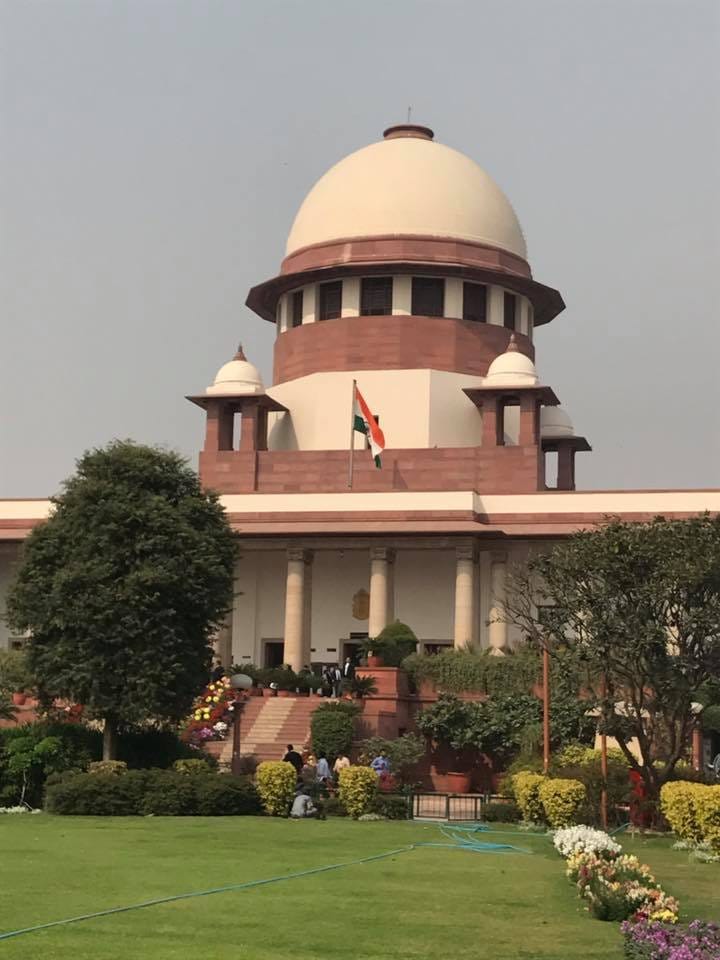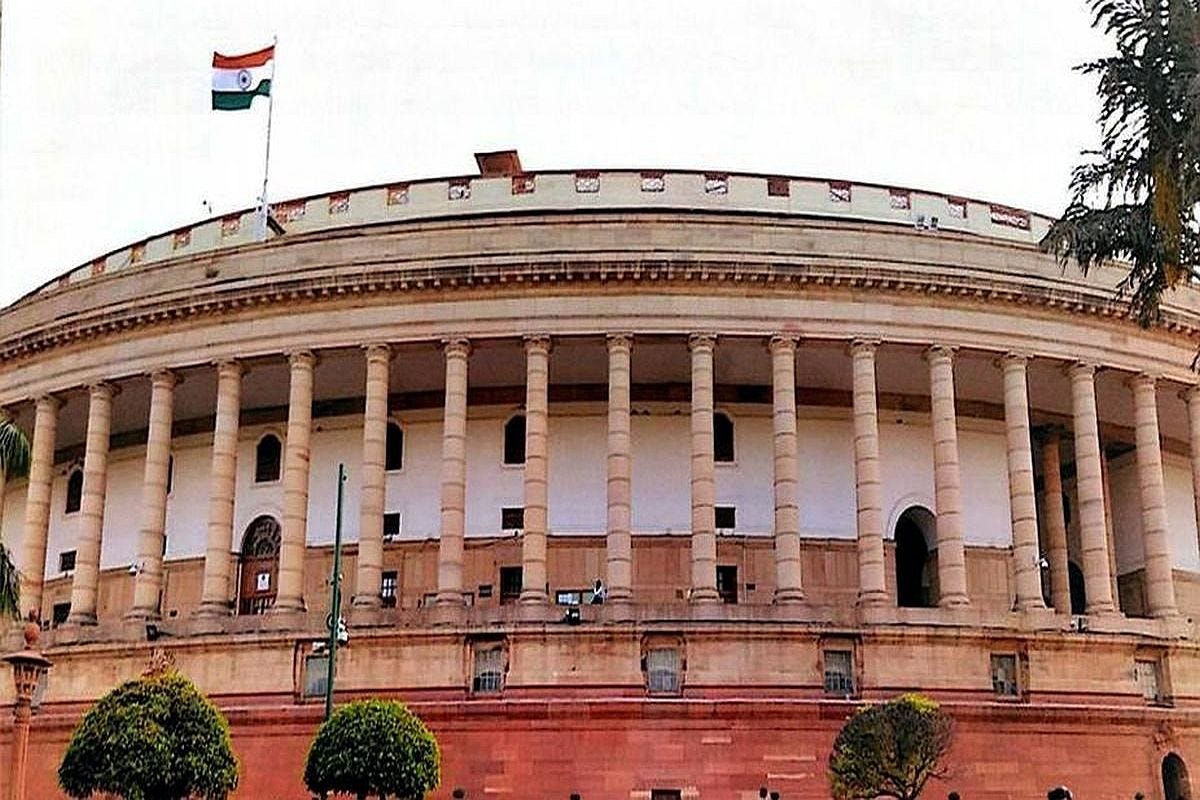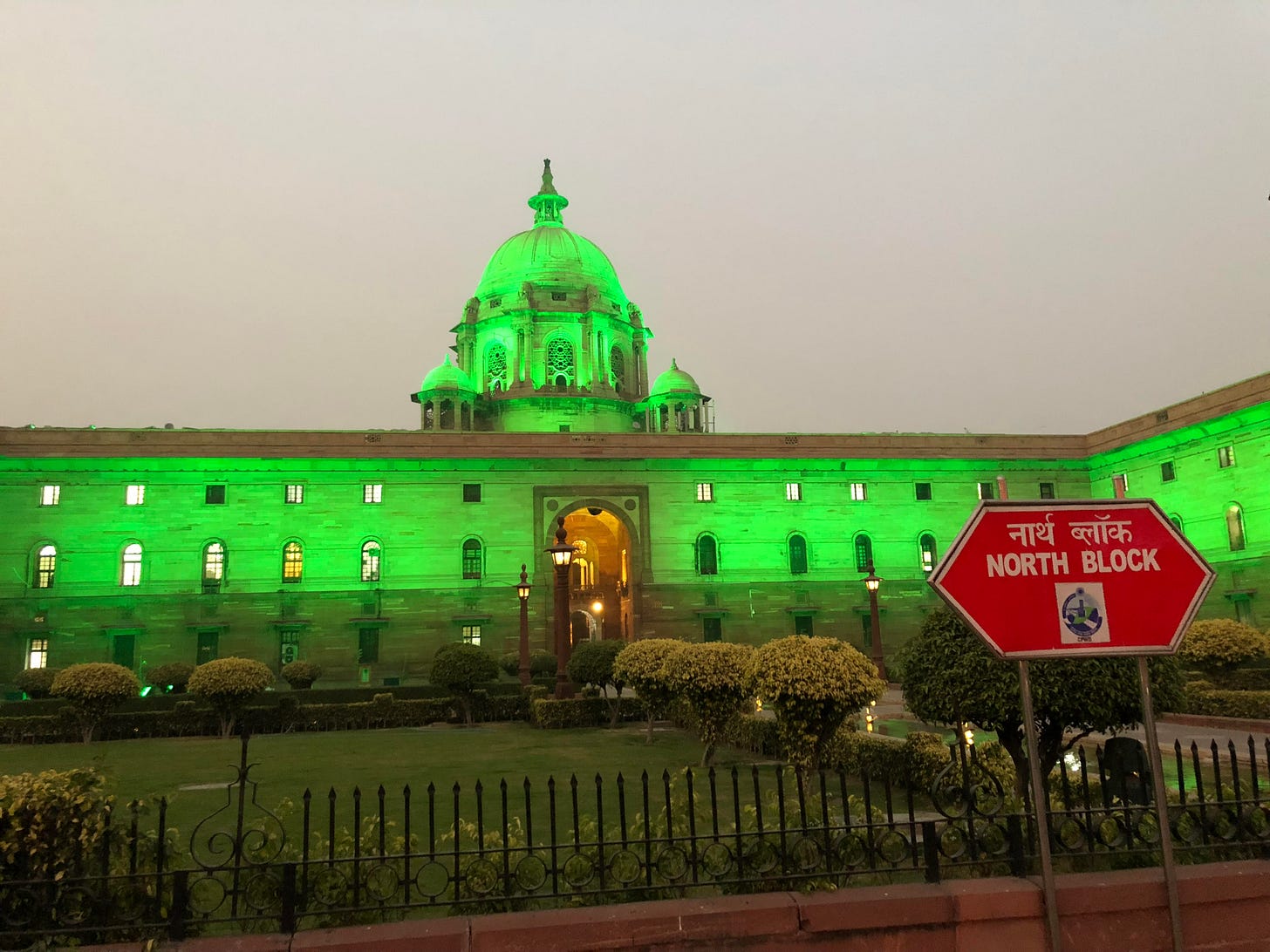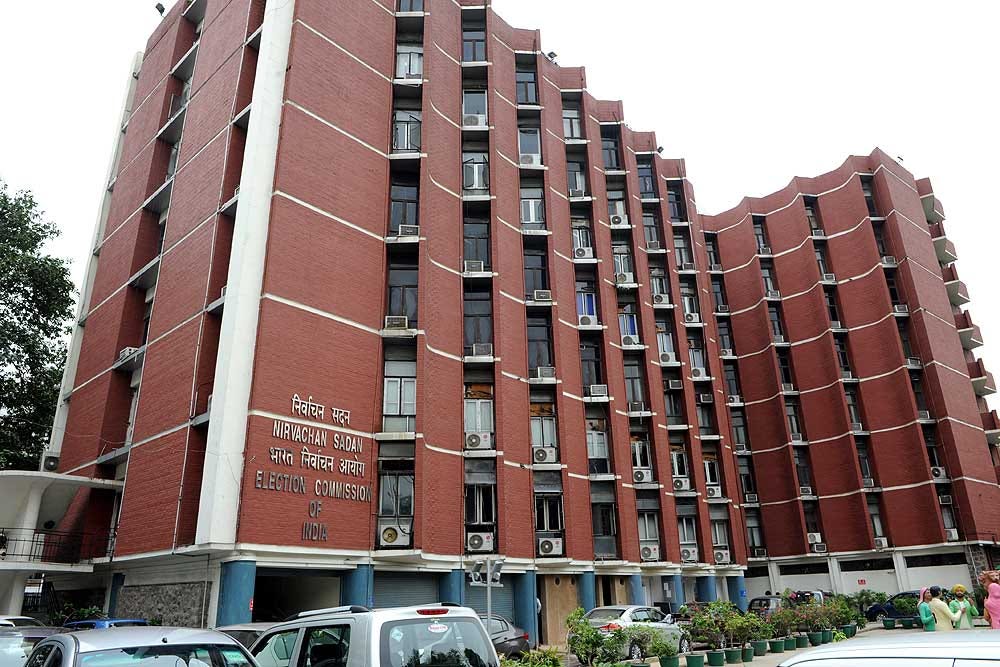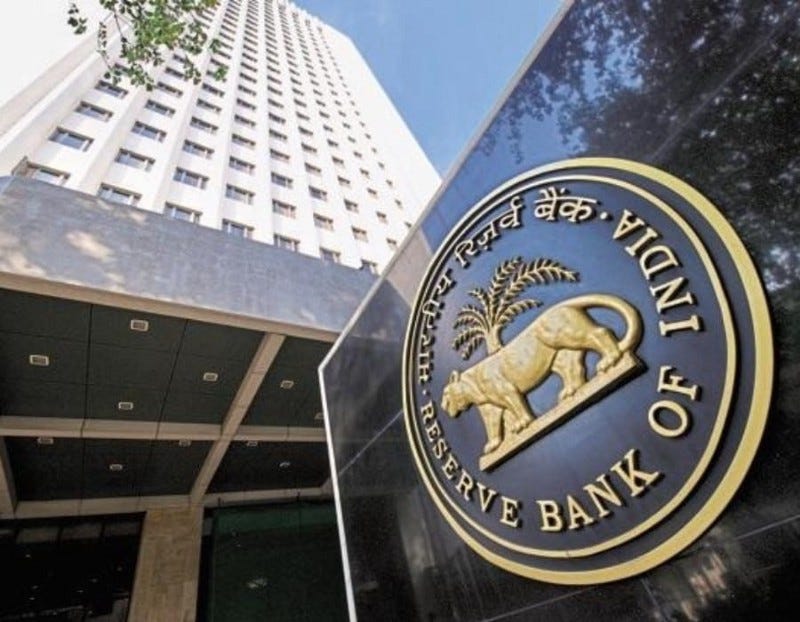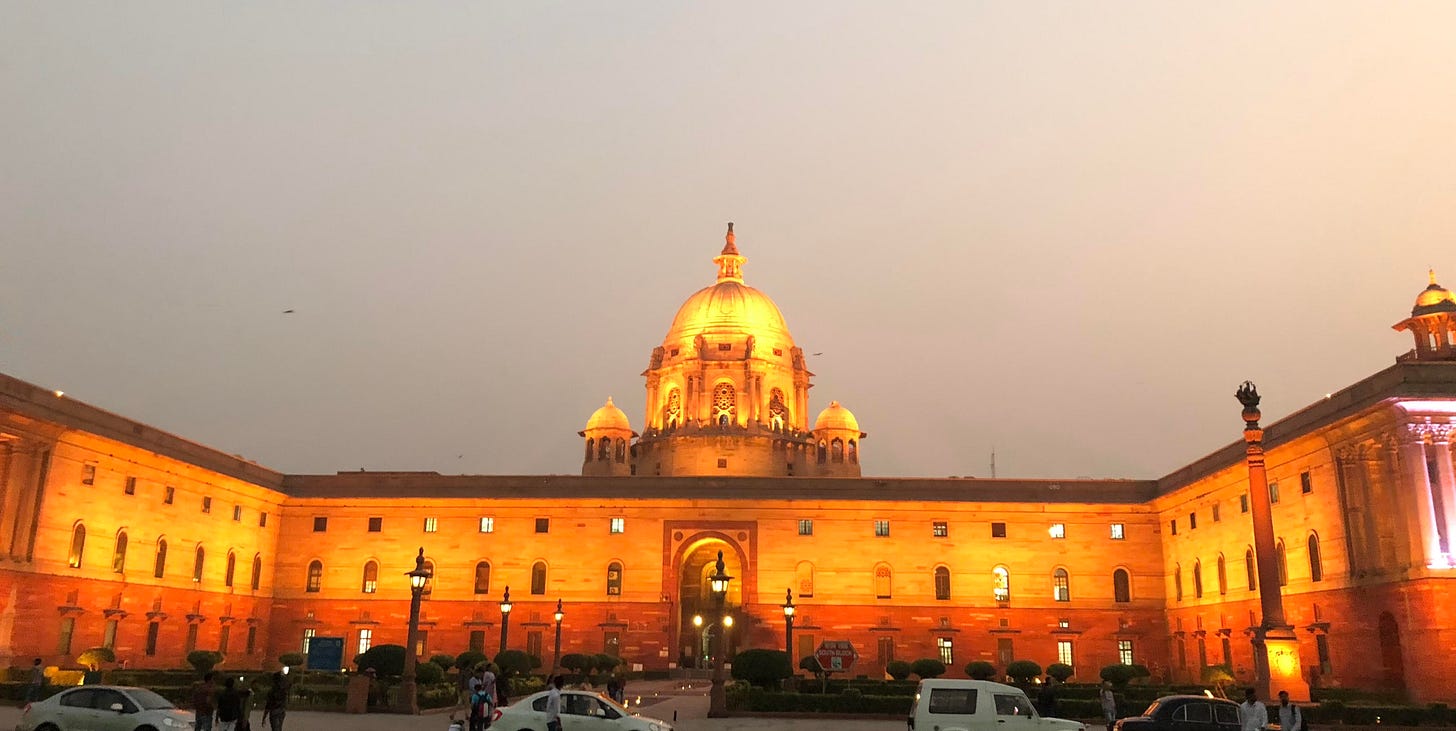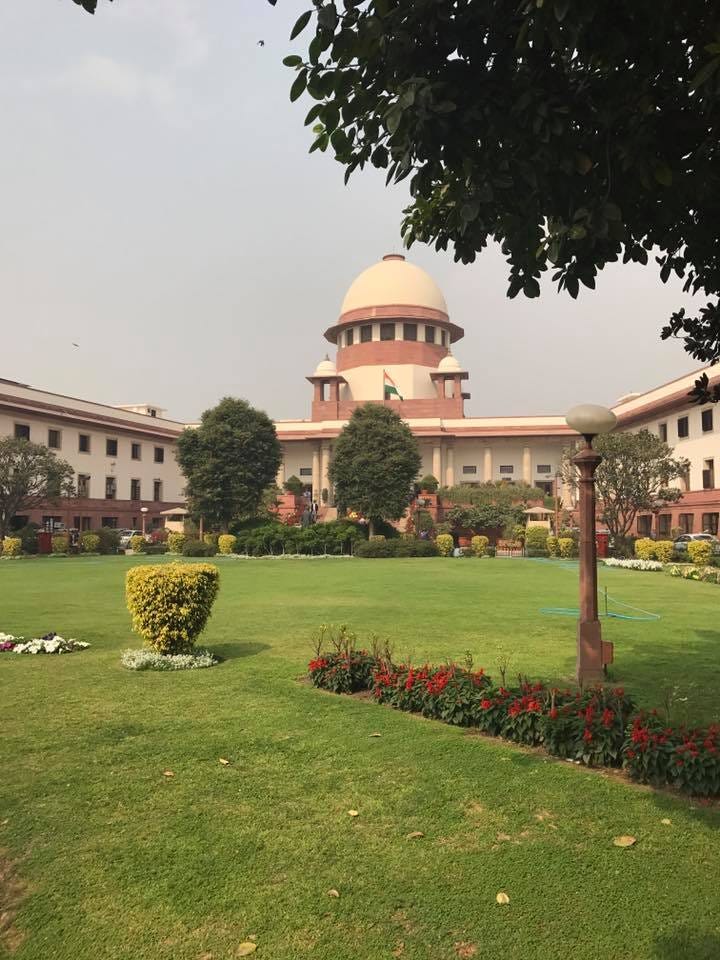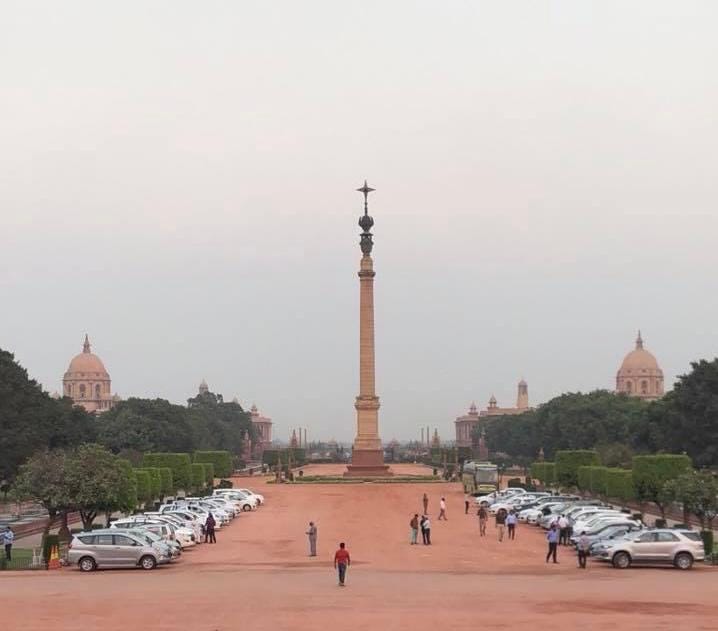Electoral Bonds— Supreme Court hearing begins on 31st October
Supreme Court to Commence Hearing on "Electoral Bonds Scheme" Petitions on October 31— Hearing to end before Diwali; Verdict Expected in 2023. Does the Scheme involve manifest Government Funding?
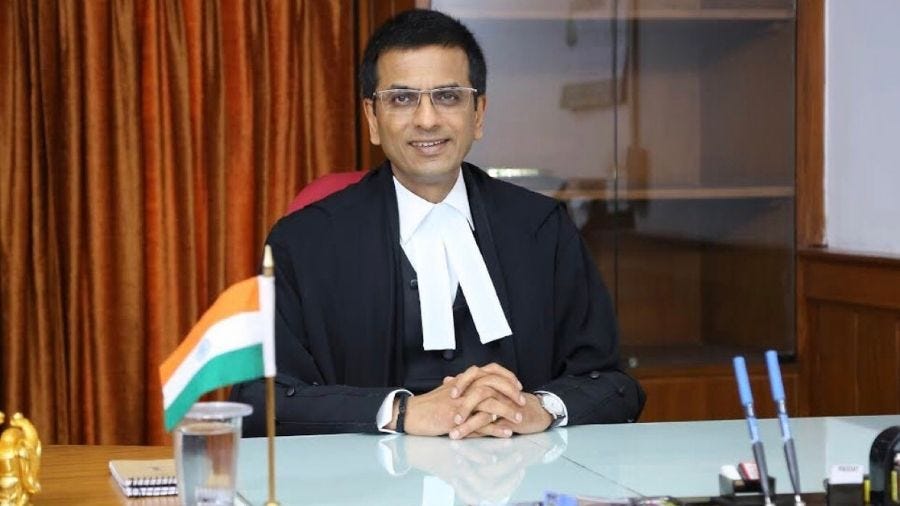
Electoral Bonds Scheme: Supreme Court to commence hearing from 31st October
The Supreme Court has scheduled the commencement of hearings for the various petitions challenging India's "Electoral Bonds Scheme" on October 31, with expectations of concluding the proceedings in a matter of days. The Supreme Court's three-judge bench, led by Chief Justice of India D.Y. Chandrachud and including Justices J.B. Pardiwala and Manoj Misra, conducted a preliminary hearing on Tuesday, October 10, to acquaint themselves with the case's issues. The primary petitioner, the Association of Democratic Reforms (ADR), argues that the scheme has opened the door to unlimited political donations and international lobbying.
Originally framed in 2017, the Electoral Bond Scheme faces a series of petitions challenging its constitutional validity, with a focus on its impact on transparency in political funding, a matter some critics label as "legalized corruption." Senior Advocates for the petitioners have indicated that they will not press the part of their challenge related to the underlying enactment's classification as a "Money Bill." Chief Justice Chandrachud has also signaled his intention to constitute a 7-Judge Bench today (October 12) to start hearing all petitions pertaining to "Money Bills." The “Money Bills” can effectively become law solely with Lok Sabha approval, circumventing the Rajya Sabha's separate and mandatory approval, as required for all other "non-Money Bills." It's noteworthy that the Constitution grants the Lok Sabha Speaker almost unfettered discretion in classifying a Bill as a "Money Bill" or otherwise.
An RTI application revealed that from March 2018 to December 2022, electoral bonds worth a staggering Rs 11700 crore were sold. The imminent hearing carries immense significance for India's political funding and transparency and will be closely monitored. We adopt a stance that is neither “for” nor “against” the Electoral Bonds Scheme; instead, we choose to delve “into” it, presenting arguments both for and against. The final decision rests with the wisdom of the Apex Court, and we hope for an authoritative judgment within this calendar year.
Electoral Bonds in India: An Introduction
In 2017, the Government of India introduced Electoral Bonds, a distinctive financial instrument designed primarily to facilitate anonymous contributions to political parties. The Electoral Bonds Scheme was incorporated into the Finance Act 2017, leading to amendments in several crucial laws, such as the Representation of the People Act, Income Tax Act, and Companies Act, including the Prevention of Money Laundering Act, 2002, to accommodate provisions concerning electoral bonds. This transformation aimed to reshape political funding in India.
Rationale:
1. Anonymity: The primary rationale behind electoral bonds was to provide anonymity to donors, allowing them to support political parties without fear of backlash or reprisal.
2. Transparency: The government argued that electoral bonds would bring transparency to political funding, as all donations through these bonds would be accounted for through banking channels.
3. Curbing Black Money: Supporters of the scheme believed that it would help in curbing the flow of unaccounted or "black" money into political parties.
Points For:
1. Anonymity: The scheme provides a degree of privacy and protection to donors who may otherwise hesitate to contribute to political parties openly.
2. Accountability: Electoral bonds are issued through authorized banks, and the transactions are recorded, making the process more transparent compared to cash donations.
3. Legitimate Funding: It allows political parties to receive legitimate and traceable donations.
Points Against:
1. Lack of Transparency: Critics argue that electoral bonds still lack transparency as the identity of the donor is not disclosed to the public, which hampers accountability.
2. Potential for Money Laundering: There are concerns that the scheme may be used for money laundering or for routing illegal funds into politics.
3. Unequal Playing Field: Smaller political parties may not have access to electoral bonds as readily as larger parties, potentially widening the financial disparity among parties.
Donor Gets Income Tax Deduction
Under the Electoral Bonds Scheme in India, the donor (whether a company or an individual) is allowed to utilize the donation made through electoral bonds as an eligible expense, which effectively reduces their income tax liability. This provision is covered under specific statutory provisions, primarily in the Income Tax Act, 1961.
Here's how it works:
1. Section 80GGB of the Income Tax Act, 1961: This section provides for a deduction in respect of contributions made by companies to political parties. It states that any contribution made by an Indian company to any political party registered under Section 29A of the Representation of the People Act, 1951, is allowed as a deduction from the total income of the company.
2. Section 80GGC of the Income Tax Act, 1961: This section deals with the deduction of contributions made by any person (other than a company) to a political party. It allows individuals to claim a deduction for the amount contributed to a political party registered under Section 29A of the Representation of the People Act, 1951.
However, there were originally limits to the deduction that could be claimed under these sections, and the statutory provisions prescribed certain conditions:
· The maximum deduction allowed under Section 80GGB and Section 80GGC is 7.5% of the company's or individual's net income, respectively.
· The donations must be made through a banking channel, including electoral bonds, to be eligible for deduction.
· The political party receiving the donation must be registered under Section 29A of the Representation of the People Act, 1951.
However, starting from April 1, 2022, these conditions and limitations have been dispensed with. Tax deduction is now available for the entire donation amount, regardless of the profit or net worth, etc.
Political Parties Pay No Income Tax
It's worth noting that income generated by any political party duly registered with the Election Commission of India (ECI) has been completely exempt from income tax for several decades, dating back to 1973 (under Section 13A of the Income Tax Act, 1961, read in conjunction with Section 29A of the Representation of the People Act, 1951).
Electoral Bonds: An Unintended Tax Savings Tool for Profit-Making Donor Entities
Electoral Bonds have emerged, whether by accident or design, as an intriguing income tax savings avenue for profit-making entities. In our opinion, it's not only understandable but also an ineluctable conclusion to regard the provision allowing profit-making entities to reduce their income tax liability through electoral bond contributions as a form of direct funding by the Central Government, equivalent to the reduced or foregone income tax. This perspective is rooted in the fact that these contributions confer a financial benefit upon the donor, akin to a direct and explicit financial incentive provided by the Government.
When profit-making entities channel contributions to political parties through electoral bonds, they experience a concrete reduction in their income tax liability. This reduction results in substantial financial savings, particularly for corporations with significant profits. It essentially translates into a direct financial advantage bestowed by the Government upon these entities, as it enables them to allocate a portion of their tax liability toward political contributions.
Even loss-making donor companies benefit
Even for loss-making companies, the provision permitting them to augment their carry-forward losses based on their donations through electoral bonds creates an intriguing dynamic. While these companies may not immediately benefit from tax deductions due to their losses, they can potentially offset future taxable income with these carried-forward losses. This cleverly leverages their political contributions for future tax relief.
This is nothing but partial Government funding
In this context, it becomes evident that the Government's policy of encouraging political contributions through electoral bonds carries a direct financial impact on the income tax liabilities of profit-making entities and the potential future tax liabilities of loss-making companies. This perspective underscores the intricate interplay between tax policy and political funding, raising pertinent questions about the nature and extent of Government support for political parties through this mechanism. Ultimately, electoral bonds have undeniable revenue implications for the Central Government, regardless of the nomenclature used, be it government funding of political parties or not.
Only Recognised National and Regional/ State Parties are Eligible
Only a select group of political parties, officially recognized as national or state parties by the Election Commission of India (ECI), are eligible to receive donations through electoral bonds. Parties that are solely registered with the ECI but lack the status of a national, state, or regional party do not have the privilege of receiving donations through this mechanism.National parties eligible to receive donations through electoral bonds include prominent ones like the BJP, Indian National Congress, and AAP. Additionally, most of the well-known regional and state-level parties are also eligible participants in this electoral funding mechanism.
Ordinary Donations vs Electoral Bonds— a Comparison
Let's compare the Electoral Bonds Scheme with ordinary donations, particularly in terms of whether cash donations are permitted and the disclosure requirements for donations made to registered political parties:
Electoral Bonds Scheme:
1. Cash Donations: Electoral bonds are specifically designed to eliminate cash donations. Donors cannot use cash to purchase electoral bonds. Instead, these bonds can only be obtained through banking channels, ensuring transparency and traceability.
2. Disclosure Requirements: One of the key features of the Electoral Bonds Scheme is the anonymity it provides to donors. Donors' identities, including their names, bank particulars, and PAN (Permanent Account Number), are not disclosed to the public or the recipient political party. This anonymity is a fundamental aspect of the scheme.
Ordinary Donations (Below Rs 20,000/-):
1. Cash Donations: Political parties can accept cash donations of up to Rs 2,000/- from a single donor in a day, per the provisions of the Income Tax Act. Such small cash donations do not require disclosure of the donor's identity. However, this limit is much lower than the threshold for electoral bonds.
2. Disclosure Requirements: For cash donations above Rs 2,000/-, political parties are required to maintain records of the donor's name and address, but they are not required to disclose this information to the Election Commission or the public. The identity of donors contributing less than Rs 20,000/- is not made public.
Ordinary Donations (Over Rs 20,000/-):
1. Cash Donations: Political parties are not allowed to accept cash donations exceeding Rs 2,000/-. Donations exceeding this amount must be made through non-cash modes, such as cheques, demand drafts, or electronic transfers.
2. Disclosure Requirements: Donations exceeding Rs 20,000/- require political parties to provide details of the donor, including their name, address, PAN, and mode of payment, to the Election Commission. This information is disclosed in the party's contribution report, which is available for public scrutiny.
In summary, the key differences between the Electoral Bonds Scheme and ordinary donations relate to the use of cash and the level of donor disclosure:
· Electoral bonds eliminate cash donations entirely, ensuring that all contributions are made through the banking system.
· Electoral bonds provide complete anonymity to donors, and their details are not disclosed to political parties or the public.
· Ordinary donations allow small cash contributions (up to Rs 2,000/-) with limited disclosure requirements.
· For ordinary donations exceeding Rs 20,000/-, detailed donor information is disclosed in contribution reports, which are publicly available.
Transparency in Political Funding
Disclosure in Financial Statements
The Government seeks to balance transparency and donor privacy in political funding. While individual donors remain anonymous in electoral bond transactions, political parties disclose the aggregate donations in their audited accounts and balance sheets, submitted to the Election Commission of India (ECI).
Purpose of Disclosure
The requirement for disclosure aims at political funding transparency. Parties must detail income sources, including donations, in their financial reports. Donations via electoral bonds, though anonymous, fall under this category.
Overall Transparency
Although donor identities remain concealed, the total donations received through electoral bonds are part of the financial disclosures, fostering transparency in political financing.
Financial Reporting
Comprehensive Reporting
Companies, whether profit-making or not, must report the entire electoral bond donation in their own annual accounts and balance sheets. While the identity of beneficiary party or parties is withheld, the aggregate sum is disclosed.
Privacy in Donations
The privacy of individual donors is preserved as their names and specific donations through electoral bonds are not disclosed. The focus remains on transparent financial transactions of political parties.
Confidentiality in Electoral Bonds
Donor Anonymity
Donor companies need not reveal the recipient political party and, in theory, may even lack information about the ultimate beneficiary. Instead, they report aggregate donations made through electoral bonds within a specific period.
Protecting Donor Privacy
The Electoral Bonds Scheme prioritizes donor anonymity while providing legitimate financial support to political parties. It ensures transparency in the quantum of donations while keeping specific recipients and amounts undisclosed.
Limited Access to Information
Typically, only the issuing and collecting banks involved in electoral bond transactions possess information about the initial donor and the ultimate recipient political party. This confidentiality aligns with the scheme's objective of safeguarding donor anonymity.
How It Works?
The Electoral Bonds Scheme is designed to maintain the anonymity of donors while ensuring traceability of funds. Here's how it typically works:
1. Issuing Bank: When a donor purchases electoral bonds from an authorized bank, the issuing bank has information about the identity of the donor. However, this information is kept confidential and not disclosed to the public or the recipient political party.
2. Collecting Bank: When a political party receives electoral bonds and encashes them, the collecting bank processes the transaction. The collecting bank has access to information about the recipient political party that encashes the bonds.
However, the key point is that the collecting bank does not have access to the identity of the individual or entity that originally purchased the electoral bonds. This ensures the anonymity of the donors. The combination of these factors allows for a degree of transparency in tracking the flow of funds to political parties while maintaining the confidentiality of individual donors' identities. This mechanism is intended to strike a balance between transparency and privacy in political funding.
A Possible Questionable Practice?
New Business Opportunities
Political insiders, intermediaries, and agents quietly acknowledge the emergence of a lucrative business avenue created by this development.
A Discreet Transaction Scenario
Secrecy in Political Contributions
Imagine an individual, perhaps a dubious businessman or a mafia figure, seeking to discreetly donate Rs. 1000 to a specific political party without attracting attention. They approach a reputable company or a high-net-worth individual with surplus funds but in need of cash for a particular purpose, like a property purchase.
The Win-Win-Win Situation
Financial Incentive for All
Why would the party receiving the cash agree to this arrangement, incurring a Rs. 100 loss? The answer lies in the fact that this Rs. 1000 donation is fully tax-deductible from their annual income, significantly reducing their income tax liability by around Rs. 300 to Rs. 350, depending on the applicable income tax rate.
Unofficial Brokers and Commissions
Facilitating the Transaction
Unofficial brokers involved in the process may receive a fee ranging from 1% to 2% for their services, while the collecting and issuing banks also earn official commissions.
The Fiscal Impact on Central Government
Overlooking the Fiscal Burden
This arrangement benefits all stakeholders involved, except for one—the Central Government exchequer, representing public funds. The potential implications of this chain as a form of money laundering under the Prevention of Money Laundering Act, 2002, require legal examination. This, however, is unlikely because the condition precedent for “money-laundering” is the generation of “proceeds of crime” under any of the the scheduled offences under the PMLA, 2002. There appears to be none in the aforesaid case, except if the concealed income leads to prosecution proceedings under the Income Tax Act, 1961, which is in itself a rare occurrence.
Nevertheless, discussions related to the discussion centred around he Electoral Bonds often overlooks the direct fiscal burden on the Central Government exchequer, receiving limited attention in financial dailies, political discourse, or even in legal arguments.
Supreme Court— likely stance of the various stakeholders
As the eagerly anticipated hearing unfolds before the Supreme Court commencing on October 31 and potentially extending for at least a week, the positions and strategies of various stakeholders will be closely scrutinized. The Central Government, being the architect of the electoral bonds scheme since 2016, will vigorously defend it, while private petitioners will deploy every legal argument in their arsenal to challenge its constitutionality.
The Election Commission of India's stance, previously wavering between ambiguity and mild support, will be a focal point of interest. The Reserve Bank of India's definitive position remains to be seen. Additionally, the political parties, apart from the ruling BJP, face a paradoxical situation as both beneficiaries and critics of the scheme. They have an opportunity to raise concerns about the alleged skewing of the level playing field, legitimization of corruption, and the potential infiltration of foreign influence, including illicit funds, into India's electoral democracy.
Verdict Will Impact the Indian Electoral Scene
Ultimately, the outcome of this constitutional bench, led by Chief Justice DY Chandrachud, will significantly impact the trajectory of Indian parliamentary democracy, irrespective of which way the decision goes. Let us wait and see— 31st October ain’t too far off.
UPDATE (16th October, 2023)
The Supreme Court of India, led by Chief Justice DY Chandrachud, today decided to escalate the petitions contesting the anonymous electoral bonds scheme to a 5-Judge Constitutional Bench. The Chief Justice acknowledged the significance of the issues involved, stating that the case will be kept on the board for October 30. This case originates from a series of petitions filed against amendments made by the Finance Act of 2017, which laid the groundwork for the anonymous electoral bonds scheme. These legislative changes affected several acts, including the Reserve Bank of India Act, Companies Act, Income Tax Act, Representation of the People Act, and the Foreign Contributions Regulations Act. The decision to hear the case comes after the petitioners pushed for the matter to be addressed before the forthcoming general elections. Last week, a 3-Judge bench, also led by CJI Chandrachud, had initially agreed to hear the case from 31st October, 2023 onwards.
UPDATE (29th October, 2023)
5-Judge Constitutional bench to commence hearing on 31st October, 2023.
A Constitution Bench of the Supreme Court will start hearing a batch of petitions challenging the Electoral Bonds scheme on October 31. The Bench comprises Chief Justice of India DY Chandrachud, Justices Sanjiv Khanna, BR Gavai, JB Pardiwala and Manoj Misra.
On October 16, a 3-judge bench comprising CJI, Justices JB Pardiwala and Manoj Mishra had referred the matter to a 5-judge bench "in view of the importance of issue raised"




